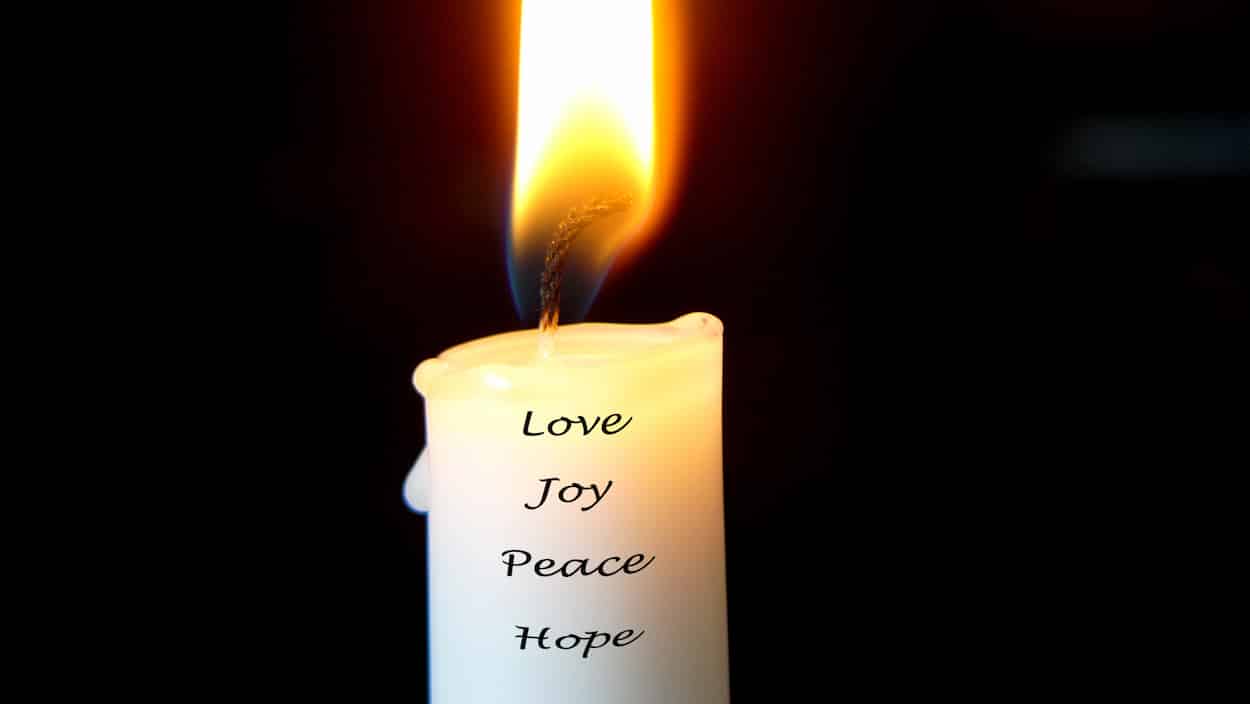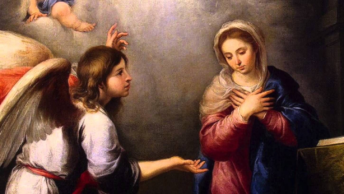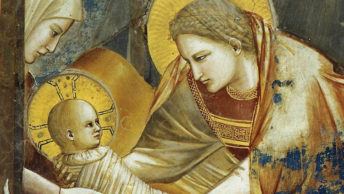Allow me to point out to you that the Church has an unusual way of starting the new liturgical year. The Church uses her instructions enlightened by God’s Word for the four Sundays of Advent, to fill us with awe and gratitude for the most astonishing and most comforting historical event in the history of humankind: the Incarnation, i.e. God’s decision to take up human flesh and be born in Bethlehem.
What is unusual is the way these instructions are offered us. They are instructions grounded in the Incarnation, the first coming of Christ; but they are about the final encounter with Christ, in death, and the intermediate coming of Christ, his presence among us between that first Christmas and the end of (our) time. As we can see, the variety adopted to describe the end of time, our death, our final encounter with Christ is deceptively, almost purposely scary, at least, as a first impression. Yet, I am here to impress upon you a vital point that we cannot afford to miss.
I am here to stress that the Church is telling us this: “if we do not root our entire life, 24/7 on the FACT that God is close to us, in human flesh; that He is actually inside us, we are bound to live lives marked by fear and anxieties.” If we do not live, around the clock, with the firm awareness that God is directly “monitoring,” so to speak, our every emotion, thought, decision, aspiration, apprehension, hope and action, we are heading for restlessness, for poor productivity and we might even wind up compromising our final encounter with the Lord.
This first Sunday of Advent, then, helps us to focus on the accurate level of our faith in God’s presence and action in our life, in our surroundings and in the entire world. To put it in a different way, this first Sunday of Advent is designed to help us assess the extent to which the first Christmas, the historical coming of God among us in human flesh, has changed us; and is now shaping our daily life. And to which extent it is also providing us with a good assessment of the quality of the hope which is sustaining us, through thick and thin, towards that final encounter with the Lord when, in death, we will exit time and space.
Presently, so many of us have completely forgotten about the Lord among us in human flesh and they see every single one of their days and many nights filled with thick apprehension and numbing fear. Their inner disposition is exacerbated by the fact that, recently they had, as most of us did, their hopes raised very high and then, dashed to the ground. This Sunday, then, might have a forceful, loud call to realize how little affect the Incarnation might have had on our mind, even though it took place over 2000 years ago. The only difference between Jesus’ flesh and ours is the absence of sin in his, period. As a matter of fact (a very comforting fact indeed) St. Paul tells us that the worst consequences of our sins and all those terrible repercussions resulting from our transgressions have spared us by divine decree and, instead, have lashed out fiercely against Christ Jesus.
Colossians 2:13-14 And even when you were dead in transgressions and the unruliness of your flesh, he brought you to life along with him, having forgiven us all our transgressions; obliterating the bond against us, with its legal claims, which was opposed to us, he also removed it from our midst, nailing it to the cross.
If this is what happened to the flesh of our God ravaged by the consequences of our poor choices, can you imagine how his flesh is always alerted and sensitive to whatever troubles us?
Whenever awareness that our God lives in human flesh for all eternity is not strong enough to keep us serene, we should go back to the following portion of Psalm 56:9: My wanderings you have noted; are my tears not stored in your vial, recorded in your book?
Isn’t that the truth? Whenever we are laden by worries, do we not wander and pace back and forth mulling over all kinds of negative outcomes? Well, none of those nervous paces is overlooked by our God! Isn’t that the truth? Even hardened, seasoned men, at times, find their eyes welling up with spontaneous tears. Well, none of our tears falls outside of God’s vial! All of our sighs, all of our pain are precious to our God especially in the wake of the Church having celebrated the Incarnation for over 2000 times!
This Sunday leads us to make room for God’s flesh in our minds and in our hearts. In our minds, so that we can pause and evaluate the different options opened before us, as we try to reach wise decisions without interference from whatever generates fear and apprehension. Then, we have to make room for God’s flesh in our hearts so that we can actually bear fruits of loving service and sincere caring.
We ought to be mindful that the only way we can live each day until our final encounter with Christ bearing the fruits of the Spirit, is by nurturing, with God’s grace, a heart that is “resting in” and comforted by the Lord. At this point, we might be able to appreciate the meaning of Jeremiah’s prophecy: “The Lord our justice.” Justice, in biblical jargon, has little to do with rewarding goodness and punishing wrongs, and all to do with the ability to operate according to one’s nature. So, for the Bible, God is just if He can deliver for us what God alone can deliver.
We should have just realized how Jesus, God in human flesh like ours, is therefore the best proof of God’s justice! This is the reason why Jesus, who is constantly reading our level of anxiety and apprehension, can order us to assume the posture of winners.
“Stand erect and raise your heads”
Today, therefore, we have to decide how firmly we believe in what we have re-learned about God’s presence and action in our life. We should not give to our opponents any indication whatsoever that we choose to live, not even for a short time, with a defeated attitude. Even our body language, not only our mind and heart, but our whole being has to let everyone know that we are winners, and that we will be winners because of the reason that led our God to assume human flesh like ours.








